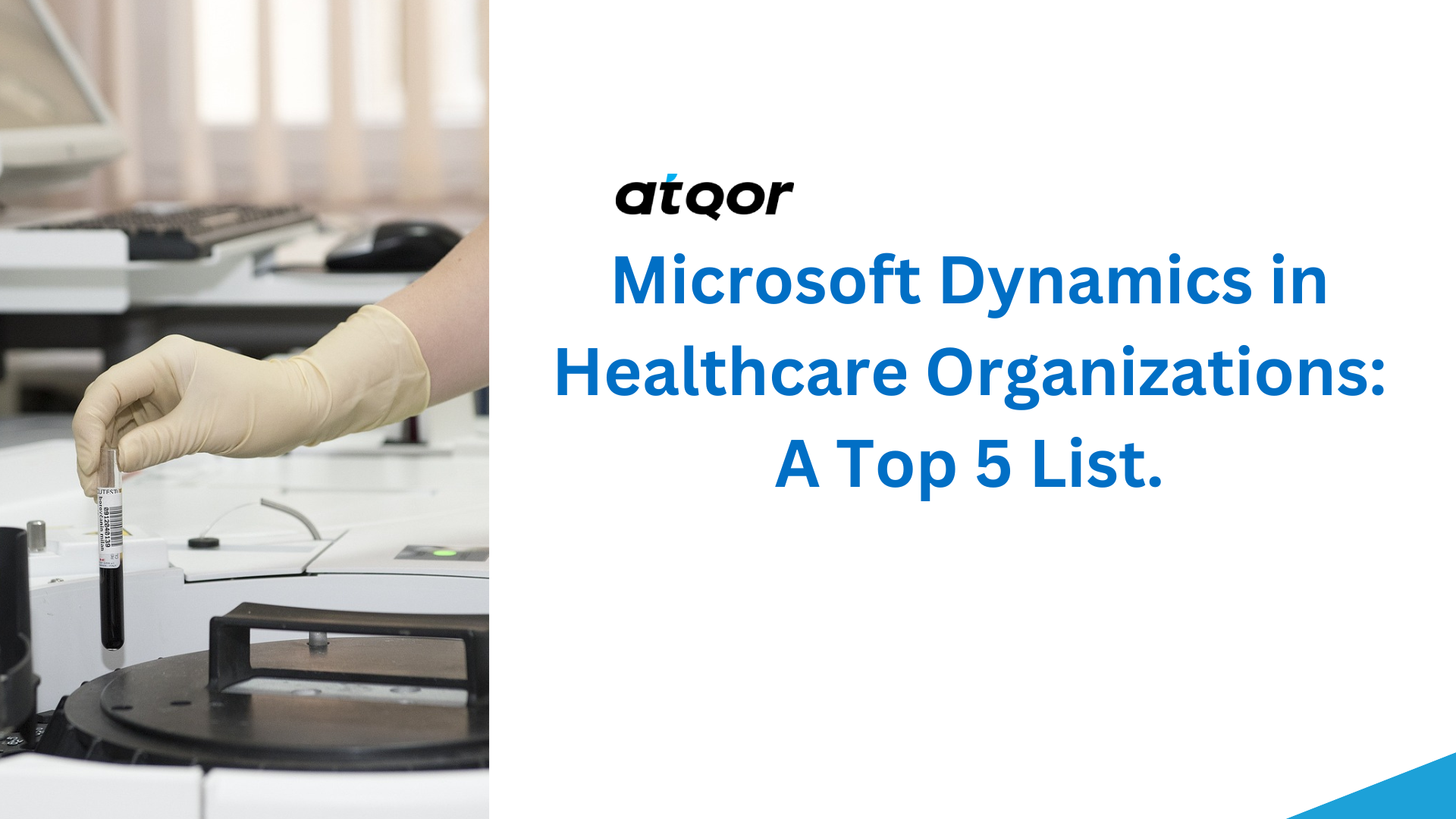April 10, 2023 | Digital Marketing , Microsoft 365

As healthcare facilities evolve and technology advances, the industry is automating more processes to improve patient experiences and provide value-based care. This shift towards value in healthcare emphasizes the importance of putting patients first and meeting their long-term preferences and requirements.
A recent survey indicates that an overwhelming majority of patients (93%) require swift access to their medical history, regardless of whether they are seeking care at the emergency room or a family physician’s office. Moreover, 71% of patients anticipate healthcare providers to offer care through a jointly agreed digital communication channel that includes information on treatment decisions. In this regard, accessing patient data in real-time can facilitate the identification of appropriate times to provide adequate care and support to patients between appointments, ultimately leading to improved health outcomes.
With its established reputation, Microsoft has had a noteworthy influence in enhancing business operations in several industries. In the realm of healthcare, Microsoft has introduced inventive solutions aimed at implementing the best practices to provide contemporary patient experiences and care.
Leveraging the myriad of functionalities offered by the Microsoft Dynamics 365 platform can aid you in attaining this aim.
Microsoft Dynamics 365 is a robust tool with a myriad of benefits for the healthcare industry. A prominent feature is its capacity to offer a comprehensive examination of internal systems and database associations, endowing healthcare providers with an all-inclusive and thorough perspective of the patient. Consequently, this enables the providers to deliver services that are more customized and tailored to the individual needs of their patients.
Dynamics 365 offers numerous benefits for healthcare organizations. Integrating Dynamics 365 allows for seamless management of patients and staff with secure and controlled access to relevant information. Moreover, the platform provides real-time access to data and performance metrics that can contribute to enhancing overall performance. These features are available at any time of day and on any device.
1. Effortlessly oversee all of your facilities situated in various locations.
Organizations with multiple facilities across different locations can face significant challenges in managing them efficiently. Keeping track of user permissions, ensuring correct transactions are allocated to the right facility, location-based reporting, and managing vast amounts of information can be complex. However, with the Microsoft Dynamics 365 platform, organizations can easily manage all their facilities and locations through a centralized system. This provides the flexibility to access all necessary information using any device, simplifying the management of complex operations.
2. Readily and efficiently manage all your purchasing and inventory needs.
Rewritten: Healthcare organizations require efficient control and visibility over purchase commitments and on-hand inventory, which can involve managing thousands of inventory items. Microsoft Dynamics provides a powerful inventory management system that enables easy management of on-hand inventory with real-time visibility to requisitions, purchase orders, and invoices. With its exceptional purchasing controls, the platform enables seamless and straightforward approvals via mobile devices and tablets. Furthermore, Dynamics supports automated processing of documents, which eliminates redundancy and the need for additional data entry, streamlining inventory management processes.
3. Dynamics 365 offers a powerful platform for integration.
‘Microsoft Dynamics 365 offers healthcare organizations a robust and dependable integration platform, allowing them to automate virtually any process with ease. With its integration engine, Microsoft Dynamics 365 can seamlessly integrate with various aspects of the healthcare organization’s system, including clinical solutions, payroll providers, and bank providers, among others. These integrations are real-time, reliable, and seamless, ensuring a smooth and efficient workflow.’
4. During the digital age, cloud-based software as a service (SaaS) and on-premises installations are increasingly being embraced.
Microsoft’s cloud deployments exhibit high scalability and customizability to conform to your individual needs. Their fully managed data centers provide an added edge to their cloud services. Microsoft Dynamics 365 platform caters to both cloud and on-premises deployment alternatives, furnishing you with the ability to select the solution that ideally suits your requisites, thereby conferring enhanced command over your investments.
5. Analytics and Data Insights:
The healthcare sector heavily relies on data-centric decision-making, but obtaining significant revelations from massive datasets can prove to be a Herculean task. Microsoft Dynamics 365 resolves this quandary by providing an array of robust reporting functionalities that facilitate the extraction of insights from data. Reports can be tailored to include vital information, such as the name of the care provider, service type, or location. The platform employs Business Intelligence to create salient metrics that are accessible from any location or device.
Deploy the Microsoft Dynamics 365 solution in your healthcare institution.
Efficiently managing healthcare facilities, accessing crucial patient and staff information, generating real-time reports and insights can greatly improve the quality of care offered by healthcare organizations. This can result in increased patient loyalty and give healthcare providers a competitive edge over their counterparts.
Nonetheless, accomplishing these objectives requires a robust, adaptable, and dependable solution that can provide healthcare organizations with the essential tools to offer exceptional care and provide patients with a seamless experience.
The platform provided by Microsoft Dynamics 365 may serve as the answer to this challenge.
Dynamics 365 offers healthcare organizations a centralized system for data storage and access, which facilitates the use of cross-functional metrics to enhance performance across departments and gain a better understanding of their influence on key business areas. Combined with real-time reporting and insights, this can enable organizations to meet their critical objectives of providing value-based care and exceptional patient experiences while simultaneously lowering technology costs.
Nevertheless, the benefits of Dynamics 365 go beyond these fundamental advantages. With an extensive selection of groundbreaking solutions, the platform has the potential to revolutionize how healthcare organizations provide their services.
If you are seeking a solution to enhance your healthcare organization, Dynamics 365 may present an optimal choice.